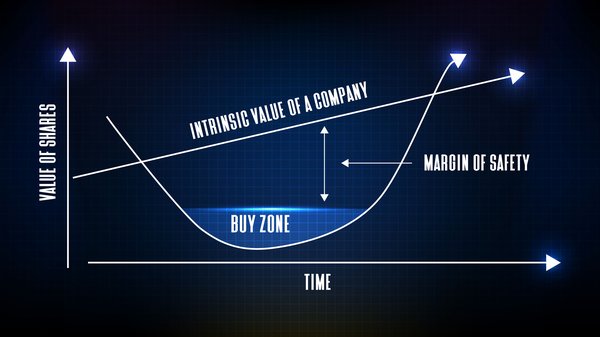A retail investor is a non-professional investor. Also known as individual investors, retail investors have an increasing impact on the market.

Anyone who doesn't do investing as a career is considered a retail investor. That's a very wide range of skill levels and specialties. Let's go over how the retail investing market works, its size, and the pros and cons of being a retail investor as opposed to an institutional investor.
Understanding retail investing
Retail investors typically invest in stocks and bonds but mostly in stocks since bonds are notoriously difficult to trade on most trading platforms. Most retail investors use discount brokerages or apps such as Robinhood (NASDAQ:HOOD) or invest through an employer-sponsored 401(k) or other retirement plan.
Recent innovations in brokerage technology and business model have made investing far easier for retail investors. A process that was limited to the 1% 40 years ago and to people with the time and energy to fill out endless forms 10 years ago can now be completed in 30 minutes on an app.
Investors can now buy and sell stocks, options, and funds with the click of a button. Retail investors can even use margin, or loans, to buy stocks and other assets.
The whole process is governed by the U.S. Securities and Exchange Commission (SEC). The SEC sets strict requirements for which investors can day trade, use margin, or invest in asset classes such as hedge funds or private equity. The SEC also regulates the filing process for public companies offering stock to investors.
Pros and cons of retail investing
Here are a few of the pros and cons of being a retail investor:
| Pros | Cons |
|---|---|
| Concentration | Fees |
| Stock size | Time |
| Liquidity | Access |
| Flexibility | Economies of scale |
| Circle of competence | Circle of competence |
Concentration
Institutional investors are often required to hold hundreds of stocks. Retail investors can choose the number of stocks they want to buy. The more concentrated you are (to a point since you need some diversification), the higher your potential returns.
Stock Size
Small-cap stocks (meaning stocks with a market capitalization of less than $2 billion) generally outperform the market. Many institutions can't purchase these stocks because they have too many assets under management and are restricted in the percentage of a company they can hold.
Liquidity
It's unlikely a single retail investor would ever move the market, but institutions with holdings in the billions of dollars have to be careful when they buy and sell stocks to avoid moving the stock too far in the wrong direction.
Flexibility
As a retail investor, if you want to hold cash for a while, you can. If you want to sell U.S. stocks to buy foreign stocks, you can. If you want to buy gold bars and load them into a safe right before forgetting the combination, you can.
Institutions have strict regulations from the SEC and from their own prospectus guidelines. Many funds are created to buy growth stocks only or large-cap stocks only. If those types of stocks are in a bear market, the fund just has to try to work around it.
Circle of competence
This one is both a pro and a con. As a retail investor, it's likely that you have some level of competence in a specific industry.
If you work for a construction company, you may understand the supply and demand dynamics for lumber, copper, and other materials. If you work for a bank, you probably have a good handle on current interest rates and credit standards. The problem is that degrees of competence can pigeonhole you.
Institutions can hire people to become specialists in every industry. They may not have the local knowledge you have in your industry, and there may be a lag before they know things, but they have at least a basic knowledge of every industry. But if you're a retail investor who works in accounting for a dog food manufacturer, it's more difficult to really be able to understand a biotech stock.
Fees
There are fees for everything. You pay a fee when you buy a stock and when you sell it. You pay a higher fee if you do it on margin or if you buy options. You pay annual fees and expenses for any fund you buy. This is even true if you use an app that has no commissions. The way those apps make money is by increasing the bid/ask spread, meaning you pay more for the stock through them than you would through a traditional broker.
Time
Professional investors have the luxury of spending their entire workday analyzing stocks and investing. Retail investors may have to find time to do proper analysis in between lunch and picking kids up from day care.
Access
Large institutions have access to some transactions that aren't available to the public. This could be a Private investment in Public Equity (PIPE), an investment in an initial public offering (IPO), or even an investment in a private company.
Economies of scale
Sometimes the problem of size (as discussed in the liquidity section) is a good thing, at least for institutional investors. When other institutions or even corporations want to buy or sell a huge block of shares, they will often offer a discount or premium to do it all at once. Institutions that can handle that level of transaction can take advantage, while retail investors would always have to pay the market price.
The retail investment market
According to Morgan Stanley, retail investors make up about 10% of the daily trading value of the 3,000 biggest U.S. stocks. That's about $38 billion per day! Where retail investors once had little to no influence on the market, they can now move stocks with billion-dollar market caps relatively easily.
Morgan Stanley also noted that retail investors tend to focus on the consumer discretionary, communication, and technology industries. This goes along with the circle of competence concept. It means that developed competence in a niche sector can lead to outsized gains going forward.
According to Charles Schwab, as many as 15% of retail investors made their first trade in 2020. Being stuck at home during the pandemic (with stimulus checks in hand) with apps like Robinhood made trading a lot easier and cheaper (at least outwardly) and led to a big jump in people interested in investing. You can probably thank Reddit and its "meme stocks" for a lot of that growth as well.
Much of the boom in retail investing has been good. The 10-plus year boom in technology growth stocks looked to be over as the pandemic started, but it has returned with a vengeance. Many tech stocks have zoomed up in the past two years. But there are negatives, too. Retail investors tend to be oriented more to the short term than institutions, and panic selling has led to a lot of volatility. More than ever, you have to take market movements with a grain of salt.
Related Investing Topics
Investing for yourself
Retail investors likely won't ever be the dominant force in the stock market. But innovations in trading technology, the many pros of investing for yourself, and easy access to websites such as this one to learn about investing make it increasingly easy for everyday people to handle their own stock purchases and sales.






























































